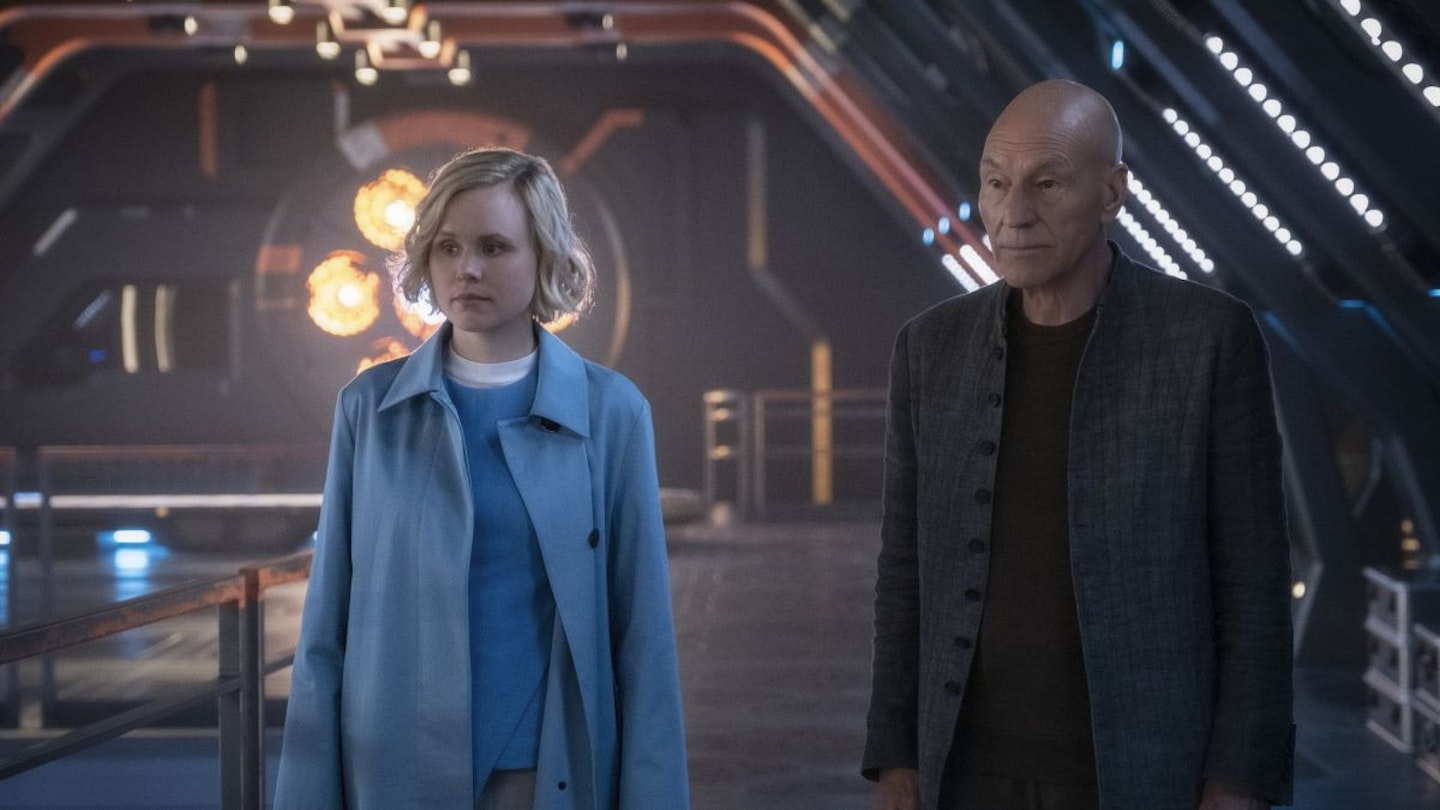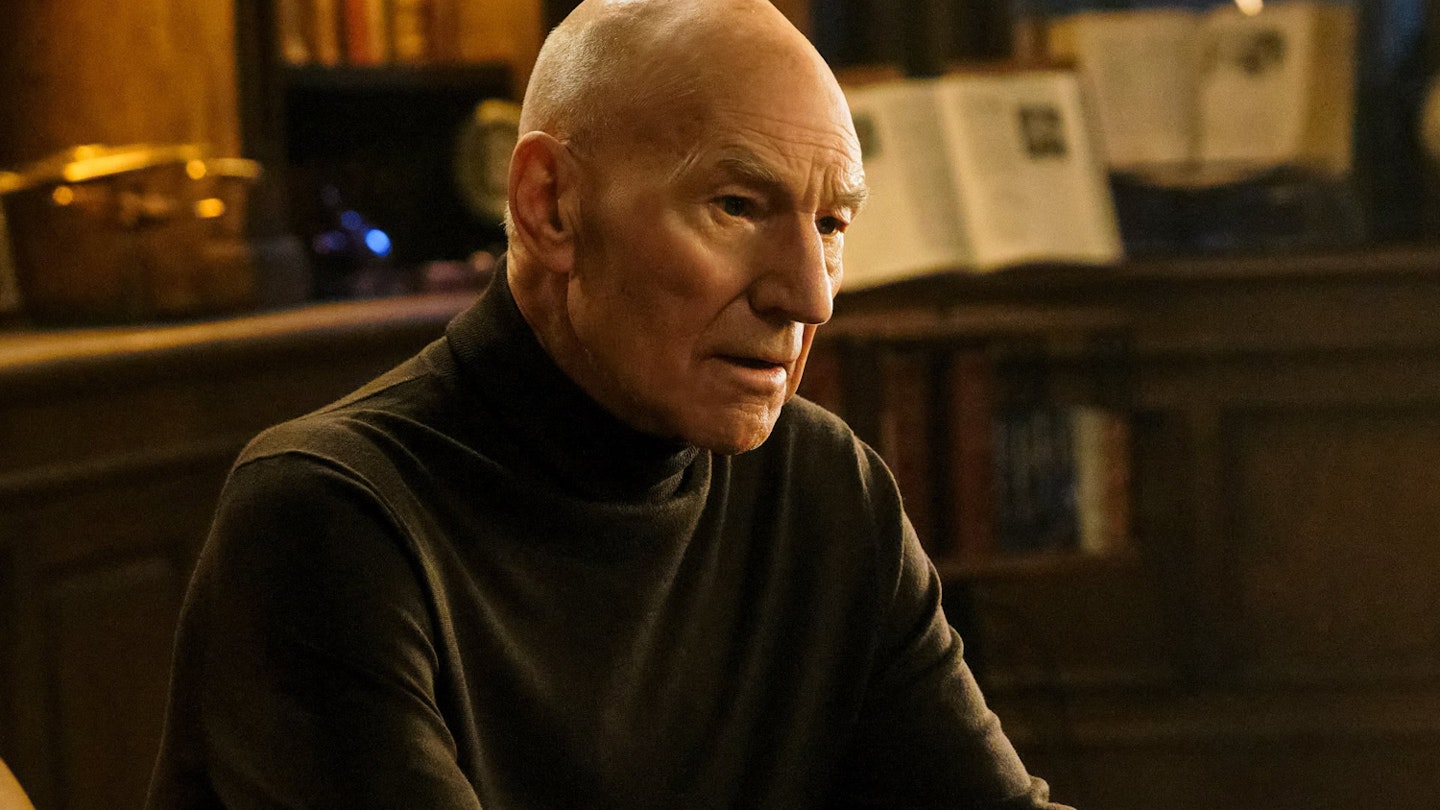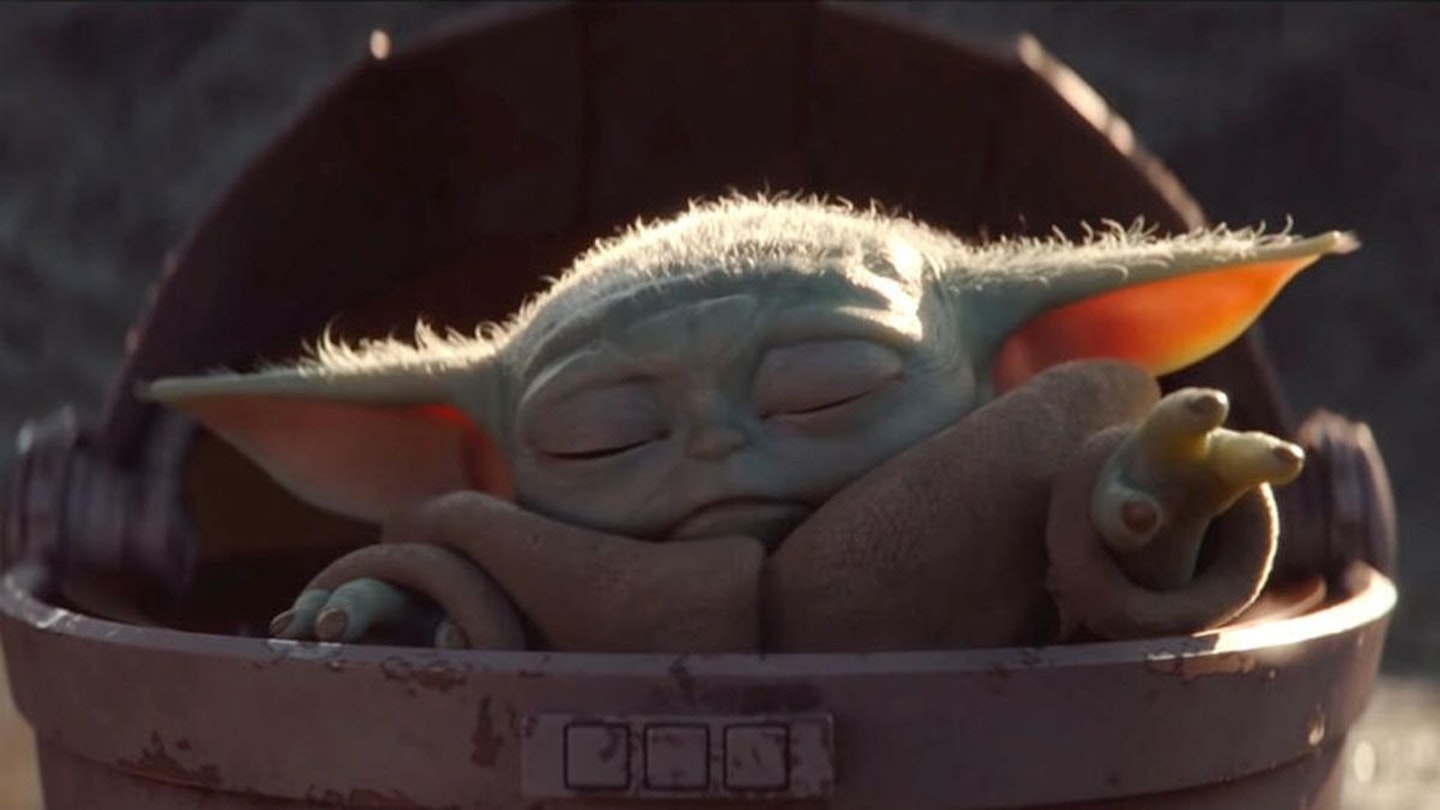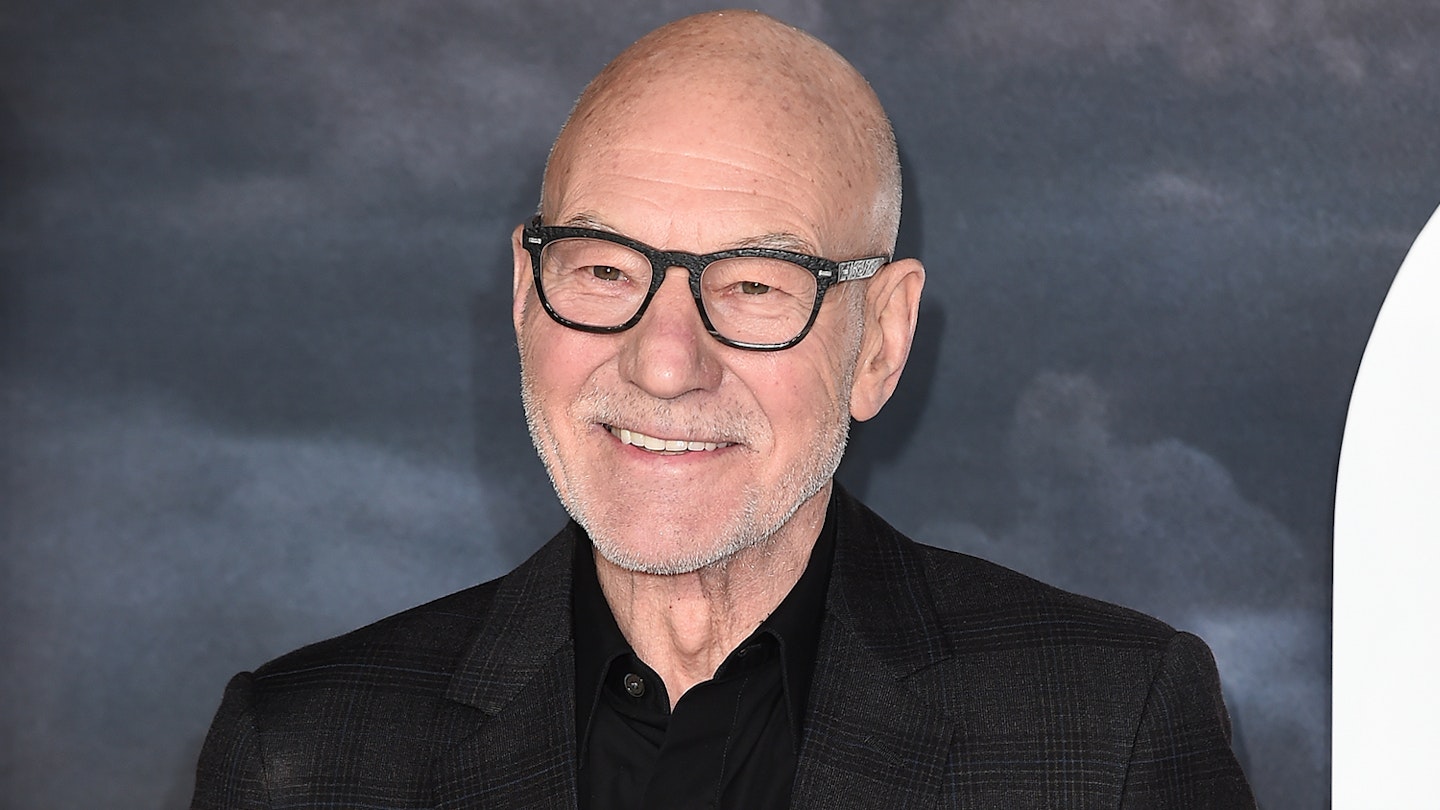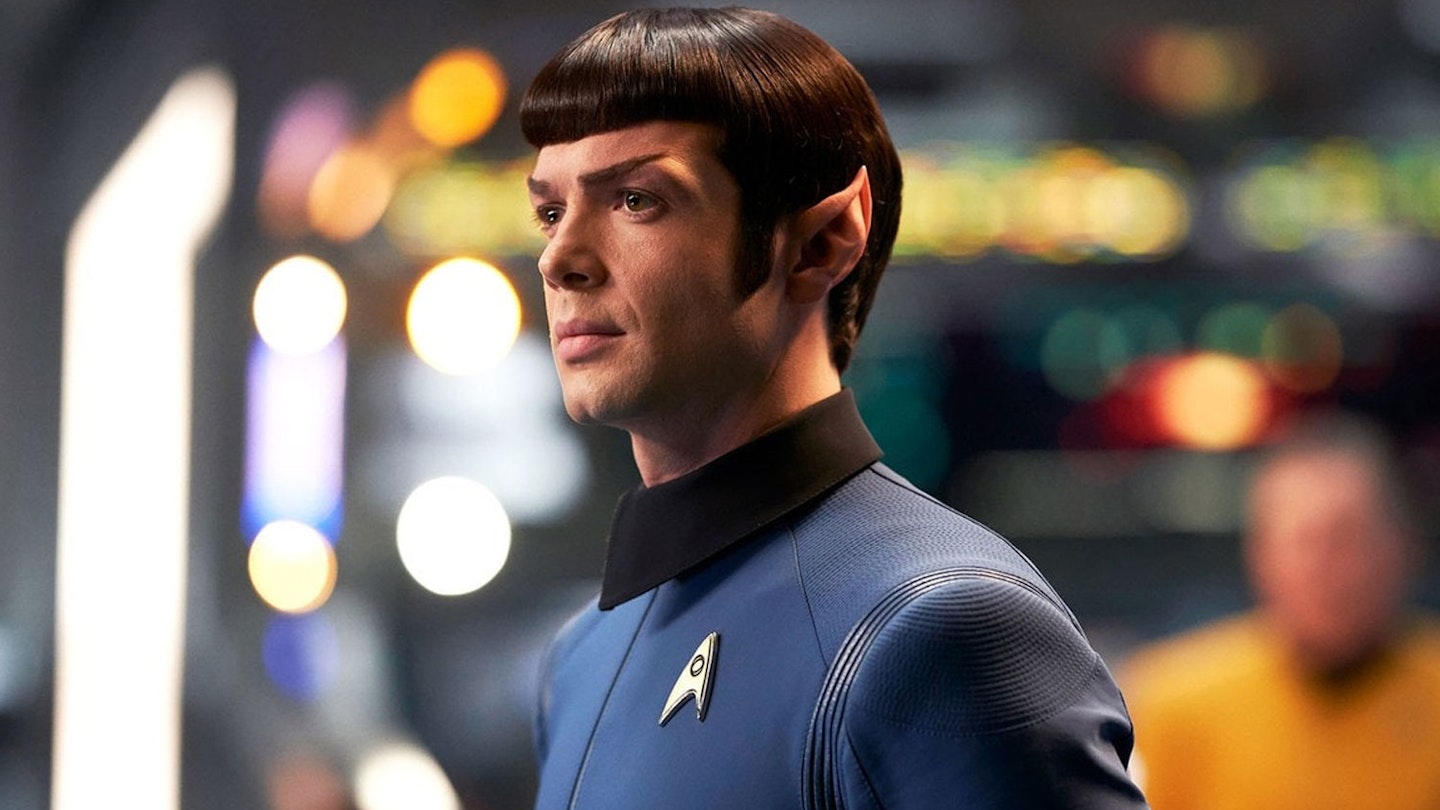Since we last saw Jean-Luc Picard at the helm of the Starship Enterprise — in 2002 our time, around 2379 his — Star Trek has largely concerned itself with new crews, operating in unexplored pockets of his universe’s past (even creating its own universe for the last three movies). Picard himself, Patrick Stewart, saw no value in returning to continue his own late-24th century adventures. There was nothing left to say, he believed. Leave it to fresher, younger Starfleet personnel. As frustrating as this was for anyone who grew up with The Next Generation on TV and agreed he was hands down the best-ever Enterprise captain (don’t @ us), it felt fair enough. The continuing, inexplicably age-defying big-screen adventures of Kirk’s crew had long-since become a joke (‘Star Trek XII: So Very Tired’, riffed The Simpsons in 1992). Where could he (boldly) go now anyway?
He is still the Picard we knew and loved.
Showrunner Michael Chabon, writer of such brilliant novels as Wonder Boys and The Adventures Of Kavalier & Clay, has the answer. The clue is in the title. This is the first Trek series to put a character name after the colon, rather than a starship’s. While Isa Briones’ mystery girl Dahj gets a lot of the screen time, and while Picard does gather a new crew around him (going rogue, as is traditional for a Starfleet emeritus), he is firmly the focus, and the limits and benefits of his venerability are narratively embraced by Chabon’s writers’ room rather than ignored. In short, Picard is far more character-driven than anything we’ve seen from Trek before.
Things haven’t gone well for Jean-Luc since we last saw him. Data (a guest-starring Brent Spiner) haunts him in vivid dreams. He considers himself a failure after Starfleet called off his planned evacuation of Romulus, the Federation’s oldest enemy, during a calamitous supernova. He is no longer with Starfleet, his recent history with the organisation awash in bad blood.
But he is still the Picard we knew and loved. Steely but benevolent. A man who has seen a lot but who has never become jaded. Where age seems to calcify most people’s beliefs and opinions in the face of all evidence, Picard remains admirably open-minded and, above all, empathetic. When Dhaj stalks onto his vineyard insisting she knows him and reveals there’s a shady hit squad on her heels, his instinctive reaction is one of warmth and kindness. While Picard rolls with Discovery’s introduction of harsh violence and bad language to the Trekiverse, it also shamelessly brings back the ’90s vibe of caring and sharing, which characterised TNG and is embodied by its title character.
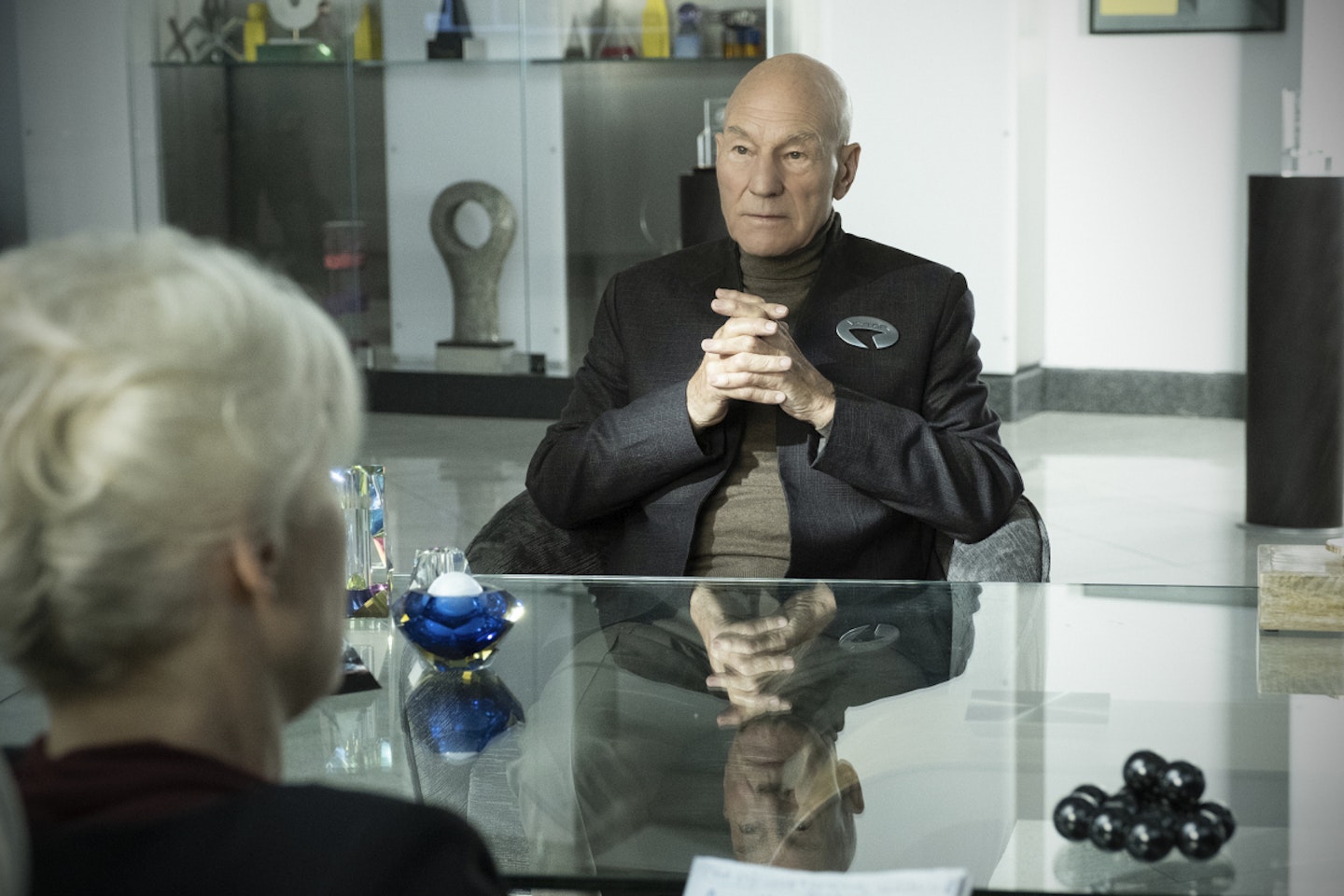
Although, in Chabon’s 2399, it seems as outmoded as ’90s optimism feels today. Picard may be character-focused, but it’s also unafraid to indulge in a little political commentary. “Nobody is listening, nobody is thinking, they’re just reacting!” Jean-Luc complains in the third episode. “I never thought Starfleet would give in to intolerance and fear.” He is the reasonable person, rendered voiceless by an increasingly unreasonable society. And you don’t need to be a 24th century octogenarian space hero to relate to that. It’s good to have him back. Like The Federation, we need him now, more than ever.
